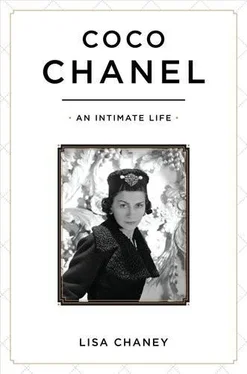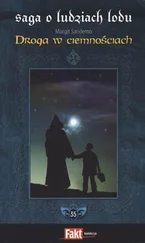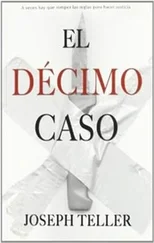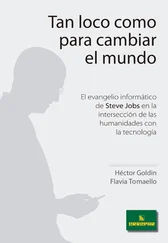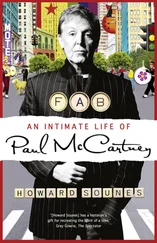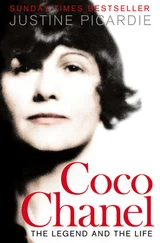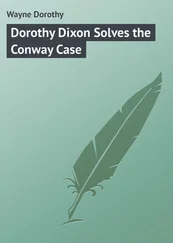In March, Gabrielle was given a sensational public endorsement when Sem parodied the foibles of high fashion in a famous series of satirical albums for the newspaper L’Illustration. Titled “True and False Chic,” in them he compared the ostentatious pomposity of contemporary “false chic” with the elegant lines of “true chic,” for him exemplified by the beautiful courtesan Forsane, whom he depicted in a svelte, fur-trimmed outfit by none other than Gabrielle Chanel. Sem soon followed this up with an even more notable cartoon in which Arthur Capel, drawn as a virile, polo-playing centaur, carried off Gabrielle in his arms. Arthur’s polo mallet was the centaur’s lance, on the end of which dangled a hat, while from Gabrielle’s arm hung an unmistakable hat box inscribed with the word “Coco.” The allusions were clear: the well-known playboy Arthur Capel was both lover and sponsor to Gabrielle Chanel, who was now an identifiable enough figure that she could also be caricatured.
In the period preceding the First World War, there appears to have been a widespread unwillingness to face the likelihood of conflict. And the closer the impending catastrophe approached, the more a striking acceleration of luxury and high living could be observed. Paul Morand’s fictional hero Lewis says to Irène, “For myself I come with limited responsibility, and… I accept none out of pessimism.” 1Irène replies that this is the easy way out, telling Lewis that “we don’t have any worries if we think the world is meaningless.” 2
On August 3, 1914, the opulence of the grand style was overnight curtailed. The West launched into a conflict that would leave it irrevocably altered. Germany had declared war on France; the First World War had begun.
On the following day, Britain entered the fray by declaring war on Germany. Twelve days later, Arthur Capel was commissioned as a second lieutenant in the Cavalry Division. The contrasting sentiments with Lewis’s declaration above and the fortitude and commitment typifying Arthur’s army service were both echoed in the words he would later write: “Let us get the strong words of Guillaume le Taciturne set firmly in our mind: ‘One does not have to hope in order to undertake, nor does one have to succeed in order to persevere.’” 3
By August 24, Arthur had joined the British Expeditionary Force, under orders from General Edmund Allenby (Cavalry Division), which was taking part in the retreat from the Battle of Mons. Mons was the first major action by the British army against the Germans, but while a relatively minor battle in itself, its position meant that it took on considerable significance. Although initially planned as a simple tactical withdrawal, what came to be known as the long retreat lasted two weeks and involved considerable loss of life, as a disciplined German army followed in relentless pursuit.
On September 4, the French commander in chief, Joseph Joffre, recognized a major German tactical error and halted the retreating Franco-British armies at the river Marne, only thirteen miles from Paris. Rallying, they overcame the Germans in the first battle of the Marne. When the German commanding officer, General Helmuth von Moltke, heard that his army might now be destroyed, he suffered a nervous breakdown and had to be relieved of his command. By September 12, it was all over and the Allies had won the battle. This transformation of a virtual rout into a victory became known as the Miracle of the Marne. But the casualties and deaths in an onslaught where more than two million men fought and almost one hundred thousand had died were nothing compared to the maiming, death and destruction that would follow in the events of this war. Meanwhile, this battle set the stage for four years of stalemated trench warfare along the length of the western front.
On enlisting, Arthur had been sent, with another Englishman, to join a small intelligence unit under George de Symons Barrow. Accompanying “the long retreat,” Arthur and his intelligence comrades went back and forth from the front line to their commanding officers, gleaning as much as they could about the relentless Germans advancing behind them. Intelligence work was difficult, often carried out at night and frequently very dangerous, as revealed by the two anecdotes below. George Barrow wrote that while retreating with the army:
The division crossed the Oise at Compiègne [close to Etienne’s château], and occupied high ground… We were assured that all the bridges… had been demolished. I went at night with Capel to make sure that no… Germans had got across in boats by other means.
We were very hungry, and going into a baker’s shop… got a newly baked loaf of bread… I found a room in a workman’s cottage and Capel found one next door. It was 1 a.m. Very tired, I took off my belt, haversack and sword and threw myself fully dressed on the bed. At 4 a.m. the owner… came to my room and said: “The Prussians are in the village…” I replied: “Impossible: all the bridges are broken.” He said, “It’s true, and I’m off ”… I did not believe him, and was desperately in need of sleep… Then I thought, “It’s not good enough to run the risk…” and dragging myself off the bed went to the door. I heard some shots and bangings at doors… at the far end of the street. At the same moment, Capel rushed out. I got my belt and haversack, left my sword — a useless weapon — behind in my hurry and we jumped into the car, which was facing the wrong way. A thick mist had come up from the river and the engine was cold. It seemed like hours before Capel could start it. Then the car had to be turned in the narrow street. Meanwhile, the door bangings drew closer and closer. At last the car was got round the corner, a hundred yards or less away. One or two shots whizzed close over our heads before we were hidden in the mist. 4
Before the great retreat finally came to an end, near Paris, Arthur and Barrow experienced another narrow escape when setting off one night in Arthur’s car to discover the proximity of the enemy. As they drove out of a wood, to their horror a German brigade crossed the road only three hundred yards ahead of them and joined up with several regiments in the fields. Incredulous at not being spotted, Arthur backed stealthily into the wood and turned the car around. Barrow wrote:
I had my eyes fixed on the enemy during the process of reversing and turning and was equally astonished and relieved that not a single German looked in our direction. At last we got around and away to safety. Had we been half a minute earlier or the German brigade half a minute later, we must have met and Capel and I would have seen no more of the war. 5
In fact, Arthur and Barrow would both live to see a good deal more of this war.
Behind the lines, forced as the revelers at Deauville had been to face this thing that so many of them had assiduously avoided, people panicked and left the resort. On the fourteenth day of that momentous August, normally the height of the season, Elisabeth de Gramont described how The Normandy, the hotel where Gabrielle and Arthur had stayed, was half closed and The Royal was going to become a hospital. Luxury shops were closing, rental agencies were empty and foreigners were disappearing: “Cars are requisitioned, the price of petrol is going up, and horse-drawn cars demand a hundred francs to go up the hill… Some prudent people… are hiding little bags of gold in their corsets… others are buying petrol.” 6
When Paris had almost been cut off by the encircling German army, Joseph Joffre was unable to ensure the safety of the capital and advised the government to retreat to Bordeaux. At that point, up to a third of Paris fled too, and Deauville was once again packed with people as the haut monde flocked to the safety of the hotels and their villas. A number of country properties had been occupied or destroyed in the wake of the advancing German army. One of these was Etienne Balsan’s château, Royallieu, occupied by German staff officers. Retaken during the Battle of the Marne, the Royallieu barracks was then converted into a frontline hospital.
Читать дальше
